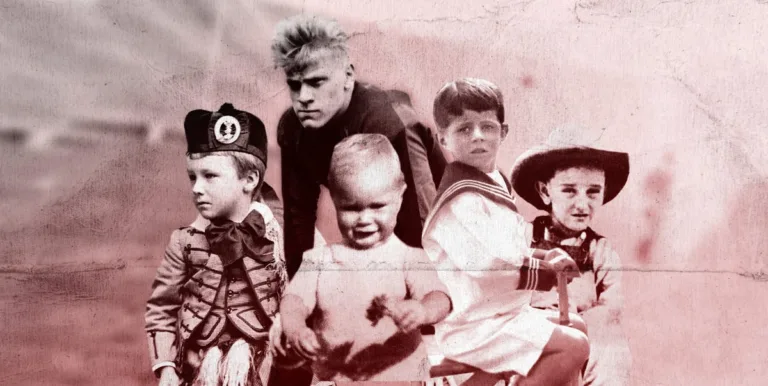“Kiss The Cook!” It’s a phrase that evokes warmth, maybe even a bit of nostalgia. We see it emblazoned on aprons, hear it playfully shouted in kitchens, and sometimes even roll our eyes at its seeming cliché. But this seemingly simple expression has a surprisingly rich history, one that takes us back to 19th-century England and beyond.
Its origins lie in an Italian-English dictionary from 1813, where the phrase “they that come too late must kiss the cook,” was first recorded. This early version implies a playful punishment for those who arrived at Mealtime Tardily, suggesting a bit of lighthearted teasing around the role of the cook. Over time, the phrase evolved, shedding its Italian roots and gaining traction in English literature.
Imagine a bustling Victorian dinner party. A guest arrives late and is greeted with a playful, “Kiss The Cook!” It’s a humorous reminder that while punctuality is appreciated, it’s the delicious meal prepared by the cook that truly matters. This sense of humor and appreciation for culinary efforts became intertwined with the phrase kiss the cook meaning, making it a charming addition to Everyday Language.
Origins of “Kiss The Cook”
While the exact origins of “kiss the cook” remain somewhat shrouded in mystery, linguistic sleuths have traced its earliest appearance to an 1813 Italian-English dictionary. This fascinating discovery suggests that the phrase may have originated in Italy before crossing over into English. The original Italian version, “they that come too late must kiss the cook,” hints at a playful punishment for tardiness, emphasizing the importance of celebrating good food and timely arrival at mealtimes.
This early use reveals a lighthearted social dynamic where culinary skills were appreciated and acknowledged with a touch of humor. Imagine arriving at a bustling Italian trattoria a bit late and being greeted by this saying! It seems that even centuries ago, people recognized the value of good cooking and enjoyed expressing their gratitude in a playful way.
This early instance set the stage for “kiss the cook” to evolve and catch on in English-speaking cultures throughout the 19th century, eventually becoming the beloved phrase we Know Today.
Evolution Through Literature And Media
The phrase started making its way Into Literary Works, appearing in poems, Short Stories, and newspaper articles throughout the 19th century. Sometimes it was used playfully, other times with a hint of suggestiveness, always adding a touch of spice to the written word. Imagine a Victorian-era romance novel where the dashing protagonist surprises his love interest with a sumptuous meal, ending the scene with, “Come, My Dear, kiss the cook!” Adding a layer of charm and Humor To Their Burgeoning Relationship.
This literary exposure helped solidify “kiss the cook” in the public consciousness, making it a familiar phrase for many. By the mid-20th century, the saying had transcended written works and found its way onto everyday Objects Like Aprons, pajamas, and even scuffs – those charming footwear staples of the era. It became a symbol of domesticity and good cheer, often associated with warm family gatherings and homemade meals.
The 1980s saw “kiss the cook” reach new heights of popularity thanks to its use in merchandise by Department Stores. And who could forget Al Bundy’s infamous “Kiss The Cook – Kill The Wife” apron from the hit sitcom Married…with Children, which further cemented the phrase’s association with humor and pop culture?
 Lee Harvey Oswald Funeral: Secret Burial and Lasting Mystery
Lee Harvey Oswald Funeral: Secret Burial and Lasting MysteryCommercialization and Popular Culture
The rise of “Kiss The Cook” in popular culture is a testament to its enduring charm and versatility. By the 1980s, department stores were capitalizing on the phrase’S Widespread Recognition, selling everything from aprons and oven mitts to mugs emblazoned with “Kiss The Cook.” This commercialization further solidified its place as a household term, making it instantly recognizable and relatable Across Generations.
The sitcom “Married… With Children” played a pivotal role in cementing “kiss the cook” in our cultural lexicon. Al Bundy’s Infamous Apron, bearing the slogan “Kiss The Cook – Kill The Wife,” injected a dose of dark humor into the phrase, making it both memorable and controversial. Despite its potentially edgy undertones, this sitcom portrayal undoubtedly contributed to the phrase’s Enduring Popularity.
Today, “kiss the cook” remains a ubiquitous saying, often seen on Bbq aprons and Novelty Gifts. While some might consider it cliché, its continued presence speaks volumes about Its Enduring Appeal. It embodies a sense of warmth, appreciation for home-Cooked Meals, and playful humor that continues to resonate with people across cultures and generations.
Modern Usage and Perceptions
In the modern era, “kiss the cook” maintains its place as a common phrase, frequently seen on aprons, Kitchen Towels, and even greeting cards. Its simplicity and warm connotation continue to resonate with people, evoking images of cozy family meals and shared moments around the dinner table.
However, like any phrase that’s been around for centuries, “kiss the cook” Has Also Attracted Some Criticism. Some perceive it as outdated or cliché, arguing that its traditional association with women in the kitchen reinforces gender stereotypes. Others find it overly simplistic, lacking nuance in a world where culinary skills are increasingly shared and Celebrated Beyond Traditional Gender Roles.
Despite these critiques, “kiss the cook” remains a widely recognized and often-Used Expression. Its enduring popularity speaks to its ability to capture a universal sentiment of gratitude and appreciation for good food and the people who prepare it. Ultimately, whether seen as charming or cliché, “kiss the cook” continues to hold a unique place in our cultural vocabulary.
Culinary Slogans: A Lasting Legacy
“Kiss The Cook” stands as a shining example of how a simple phrase can transcend its origins and become a cultural touchstone. Its journey from an Italian idiom to a beloved kitchen saying demonstrates the power of language to evolve and adapt over time. It’s a testament to the human need for connection, appreciation, and a good meal shared with Loved Ones.
The enduring popularity of “kiss the cook” also highlights the significance of culinary slogans in shaping our perception of food and cooking. These catchy phrases often encapsulate a feeling, a tradition, or even a sense of humor, adding an extra layer of meaning to our interactions with food.
Ultimately, “kiss the cook” serves as a reminder that food is more than just sustenance; it’s a powerful connector, a source of comfort, and a catalyst for shared experiences. And sometimes, all it takes is a simple phrase to capture the essence of these warm and fuzzy culinary moments.










